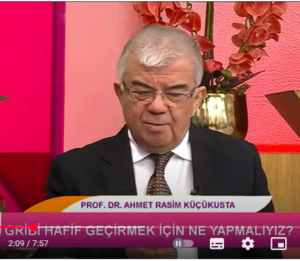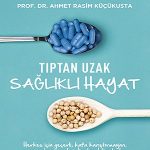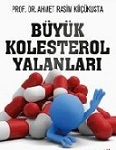PLASMA HDL CHOLESTEROL AND RİSK OF MYOCARDIAL INFARCTION

Plasma HDL cholesterol and risk of myocardial infarction: a mendelian randomisation study
Benjamin F Voight PhD a b f †, Gina M Peloso PhD g h †, Marju Orho-Melander PhD i, Ruth Frikke-Schmidt DMSc k, Maja Barbalic PhD l, Majken K Jensen PhD m, George Hindy MD i, Hilma Hólm MD p, Eric L Ding ScD n o, Toby Johnson PhD q, Prof Heribert Schunkert MD r, Prof Nilesh J Samani MD t v, Robert Clarke MD aa, Jemma C Hopewell PhD aa, Prof John F Thompson PhD u, Mingyao Li PhD w, Gudmar Thorleifsson PhD p, Christopher Newton-Cheh MD b d e f, Kiran Musunuru MD b d f, James P Pirruccello BS b d f, Danish Saleheen MBBS y, Li Chen MSc z, Alexandre FR Stewart PhD z, Arne Schillert PhD s, Unnur Thorsteinsdottir PhD p ac, Gudmundur Thorgeirsson MD ac ad, Prof Sonia Anand PhD ae, James C Engert PhD af, Thomas Morgan MD ag, Prof John Spertus MD ah, Prof Monika Stoll PhD ai, Prof Klaus Berger MD aj, Nicola Martinelli MD ak, Prof Domenico Girelli MD ak, Prof Pascal P McKeown MD al, Christopher C Patterson PhD al, Stephen E Epstein MD am, Joseph Devaney PhD am, Mary-Susan Burnett PhD am, Vincent Mooser MD an, Samuli Ripatti PhD ao, Ida Surakka BSci ao, Prof Markku S Nieminen PhD ao ap, Juha Sinisalo MD ap, Marja-Liisa Lokki PhD aq, Prof Markus Perola PhD ar, Aki Havulinna PhD ar, Prof Ulf de Faire MD as, Bruna Gigante MD as, Erik Ingelsson PhD at, Tanja Zeller PhD au, Philipp Wild MD au, Prof Paul I W de Bakker PhD f av ax ay, Olaf H Klungel PhD aw, Anke-Hilse Maitland-van der Zee PhD aw, Bas J M Peters PhD aw, Prof Anthonius de Boer PhD aw, Prof Diederick E Grobbee PhD ax, Pieter W Kamphuisen PhD az, Vera H M Deneer PhD bc, Clara C Elbers PhD ax ay, N Charlotte Onland-Moret PhD ax ay, Prof Marten H Hofker PhD ba, Prof Cisca Wijmenga PhD bb, WM Monique Verschuren PhD bd, Jolanda MA Boer PhD be, Prof Yvonne T van der Schouw PhD ax, Asif Rasheed bf, Philippe Frossard bf, Serkalem Demissie PhD g h, Cristen Willer PhD bg, Ron Do PhD b d, Prof Jose M Ordovas PhD bh bi, Prof Gonçalo R Abecasis PhD bg, Prof Michael Boehnke PhD bg, Karen L Mohlke PhD bj, Mark J Daly PhD b f, Candace Guiducci BS f, Noël P Burtt BS f, Aarti Surti BS f, Elena Gonzalez BS f, Shaun Purcell PhD b f, Stacey Gabriel PhD f, Jaume Marrugat PhD bk, John Peden PhD ab, Jeanette Erdmann PhD r, Patrick Diemert MD r, Christina Willenborg MSc s, Inke R König PhD s, Marcus Fischer MD bm, Christian Hengstenberg MD bm, Andreas Ziegler PhD s, Ian Buysschaert MD bn bo, Diether Lambrechts PhD bn bo, Prof Frans Van de Werf MD bo, Prof Keith A Fox MBChB bp, Nour Eddine El Mokhtari MD bq, Diana Rubin MD br, Jürgen Schrezenmeir PhD bs, Prof Stefan Schreiber MD bq, Arne Schäfer PhD bq, Prof John Danesh FRCP y, Prof Stefan Blankenberg MD au, Prof Robert Roberts MD z, Prof Ruth McPherson MD z, Prof Hugh Watkins MD ab, Prof Alistair S Hall MD bt, Prof Kim Overvad MD bu, Eric Rimm ScD m o, Eric Boerwinkle PhD l, Prof Anne Tybjaerg-Hansen DMSc, MD k bv, Prof L Adrienne Cupples PhD g h, Muredach P Reilly MD x, Prof Olle Melander MD j, Prof Pier M Mannucci MD bw, Prof Diego Ardissino MD bx, Prof David Siscovick MD by, Roberto Elosua PhD bk bl, Kari Stefansson MD p ac, Christopher J O’Donnell MD e h, Prof Veikko Salomaa MD ar, Prof Daniel J Rader MD x, Prof Leena Peltonen PhD ao bz, Prof Stephen M Schwartz PhD by, Prof David Altshuler PhD MD b c f ca, Sekar Kathiresan Dr MD b d e f 

Summary
Background
High plasma HDL cholesterol is associated with reduced risk of myocardial infarction, but whether this association is causal is unclear. Exploiting the fact that genotypes are randomly assigned at meiosis, are independent of non-genetic confounding, and are unmodified by disease processes, mendelian randomisation can be used to test the hypothesis that the association of a plasma biomarker with disease is causal.
Methods
We performed two mendelian randomisation analyses. First, we used as an instrument a single nucleotide polymorphism (SNP) in the endothelial lipase gene (LIPG Asn396Ser) and tested this SNP in 20 studies (20 913 myocardial infarction cases, 95 407 controls).
Second, we used as an instrument a genetic score consisting of 14 common SNPs that exclusively associate with HDL cholesterol and tested this score in up to 12 482 cases of myocardial infarction and 41 331 controls.
As a positive control, we also tested a genetic score of 13 common SNPs exclusively associated with LDL cholesterol.FindingsCarriers of the LIPG 396Ser allele (2·6% frequency) had higher HDL cholesterol (0·14 mmol/L higher, p=8×10−13) but similar levels of other lipid and non-lipid risk factors for myocardial infarction compared with non-carriers.
This difference in HDL cholesterol is expected to decrease risk of myocardial infarction by 13% (odds ratio [OR] 0·87, 95% CI 0·84—0·91). However, we noted that the 396Ser allele was not associated with risk of myocardial infarction (OR 0·99, 95% CI 0·88—1·11, p=0·85).
From observational epidemiology, an increase of 1 SD in HDL cholesterol was associated with reduced risk of myocardial infarction (OR 0·62, 95% CI 0·58—0·66). However, a 1 SD increase in HDL cholesterol due to genetic score was not associated with risk of myocardial infarction (OR 0·93, 95% CI 0·68—1·26, p=0·63).
For LDL cholesterol, the estimate from observational epidemiology (a 1 SD increase in LDL cholesterol associated with OR 1·54, 95% CI 1·45—1·63) was concordant with that from genetic score (OR 2·13, 95% CI 1·69—2·69, p=2×10−10).
Interpretation
Some genetic mechanisms that raise plasma HDL cholesterol do not seem to lower risk of myocardial infarction. These data challenge the concept that raising of plasma HDL cholesterol will uniformly translate into reductions in risk of myocardial infarction.
Funding
US National Institutes of Health, The Wellcome Trust, European Union, British Heart Foundation, and the German Federal Ministry of Education and Research.
















